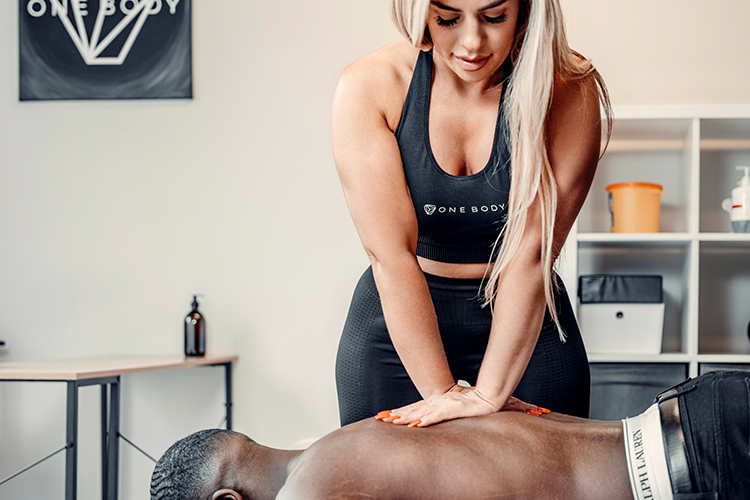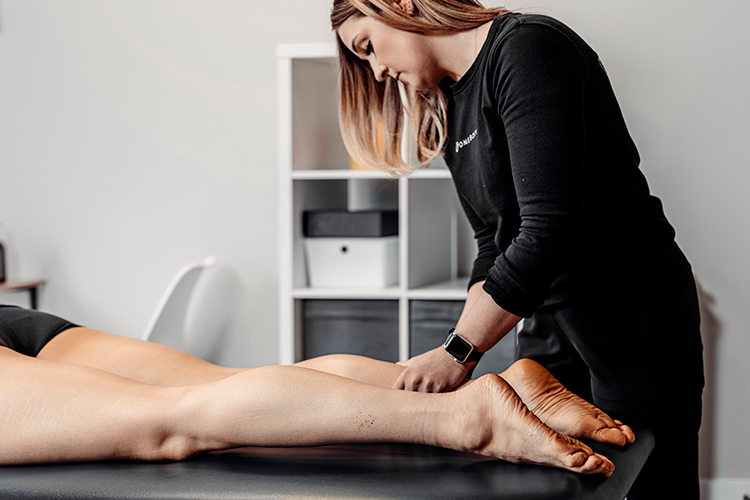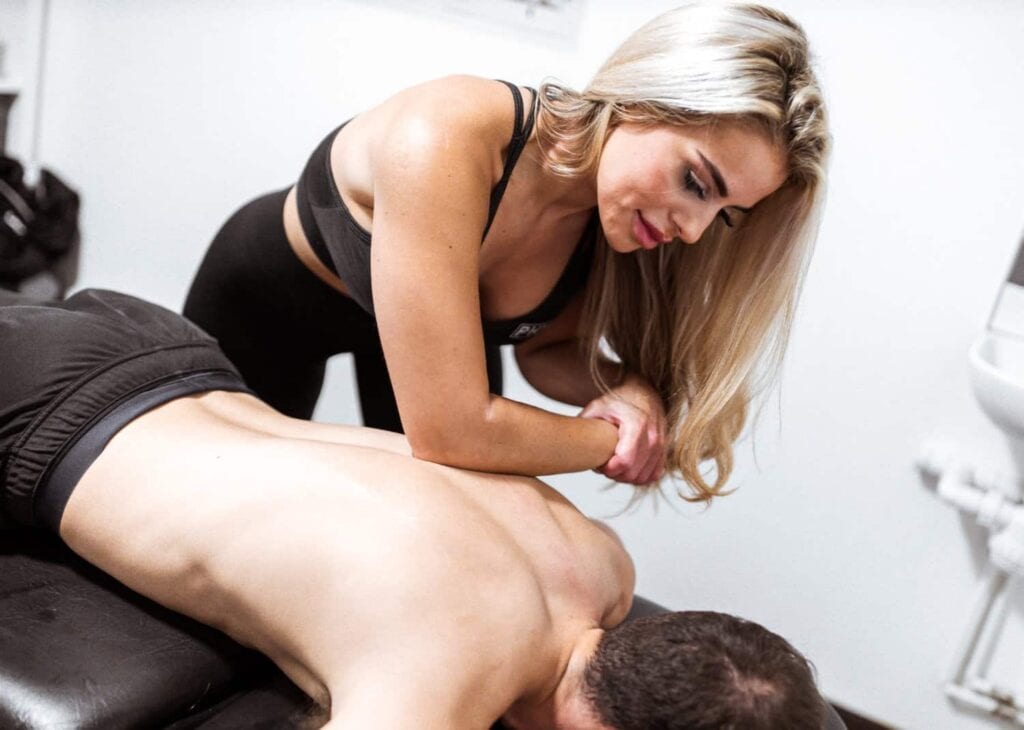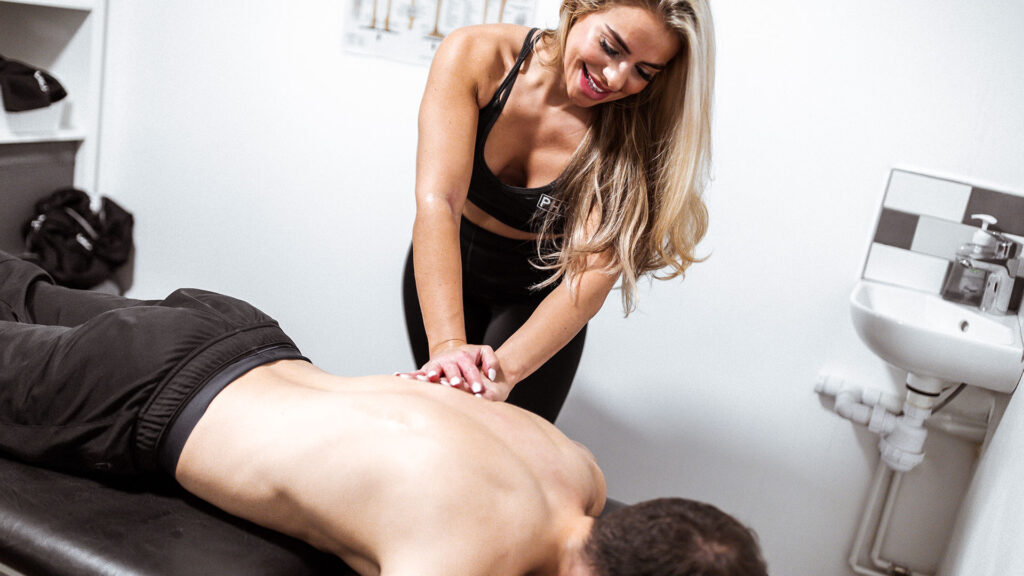Table of Contents
Main Takeaways
- Hydrate before your session: Drink at least 500ml of water an hour before your massage to enhance circulation, reduce soreness, and support muscle recovery.
- Eat light and smart: Avoid heavy or greasy meals; instead, opt for a light snack 60–90 minutes before your session to stay energized and comfortable.
- Dress for comfort and recovery: Wear loose-fitting clothes to your appointment and consider athletic wear if recovering from an injury to support easier post-massage movement.
- Communicate pressure preferences: Deep tissue massage involves firm pressure—always inform your therapist about any discomfort, injuries, or pressure concerns for a safe, effective session.
- Support your recovery afterward: Post-massage, stay hydrated, do gentle stretches, avoid strenuous activity for 24–48 hours, and consider heat therapy to maximize healing.
Introduction: Why Preparation Matters for a Deep Tissue Massage
A deep tissue massage is an effective treatment for chronic pain, muscle tension, and recovery from injury. However, to gain the maximum benefits from your session, proper preparation is essential.
Many first-time clients in London are unsure of what steps to take before their appointment. This guide outlines the best preparation practices to help you get the most out of your deep tissue massage experience.
By preparing correctly, you ensure that your muscles are relaxed and receptive to treatment, leading to improved flexibility, reduced soreness, and a more effective recovery process.
How to Get Ready for a Deep Tissue Massage in London

Hydration: Why Drinking Water is Important Before a Session
Hydration is key to a successful massage session. Drinking plenty of water before your massage helps to:
- Flush out toxins released during deep tissue work.
- Prevent post-massage soreness by keeping muscles hydrated.
- Improve circulation, allowing for better muscle recovery.
Tip: Aim to drink at least 500ml of water an hour before your session to keep your muscles supple and responsive.
Avoiding Heavy Meals Before Your Massage
It is advisable to avoid heavy or greasy meals before your session. Eating a large meal can:
- Make you feel uncomfortable lying on the massage table.
- Reduce blood circulation efficiency during the massage.
- Increase bloating, which may interfere with deep tissue techniques.
A light meal or snack (such as a banana or smoothie) 60–90 minutes before your session is ideal to maintain energy levels without discomfort.
What to Wear for Your Session
While you will be provided with privacy to undress for your massage, wearing the right clothing can enhance your pre and post-session comfort:
- Opt for loose-fitting, breathable clothing.
- Avoid tight jeans, belts, or restrictive garments.
- If you are recovering from an injury, bring suitable athletic wear for easier movement post-massage.
What to Expect During Your Deep Tissue Massage

Pressure Levels and Communication with Your Therapist
Deep tissue massage involves firm pressure, which may feel intense at times. However, it should never be unbearable. To ensure a comfortable experience:
- Communicate with your therapist about pressure preferences.
- Inform them about any painful areas or previous injuries.
- Breathe deeply to help your muscles relax and reduce tension.
Techniques Used and Their Effects
During your session, the therapist will use a combination of techniques, including:
- Slow strokes and deep finger pressure to target muscle knots.
- Friction and myofascial release to break down adhesions.
- Trigger point therapy to relieve chronic tension.
The effects of deep tissue massage may include temporary soreness, but this is normal and indicates that the muscles are healing and realigning.For more information see our blog Dealing with Pain After Deep Tissue Massage.
Post-Massage Care: What to Do After Your Session
Stretching, Hydration, and Avoiding Strenuous Activity
Your muscles will continue to respond to the massage for several hours post-session. To enhance recovery and maintain the benefits:
- Drink water to flush out toxins and prevent stiffness.
- Engage in gentle stretching to maintain muscle flexibility.
- Avoid intense workouts for 24–48 hours to allow muscle healing.
- Use a warm bath or heat therapy to ease any lingering soreness.
Following these steps ensures that your deep tissue massage delivers the best possible results for pain relief, relaxation, and recovery.
Book a Deep Tissue Massage in London with One Body LDN

At One Body LDN, our expert London-based physiotherapists and massage therapists provide tailored deep tissue massage treatments to relieve pain, enhance mobility, and improve well-being. We are approved by Bupa, AXA PPP, Cigna, WPA, and Healix, making treatment accessible for those with private health insurance.
👉 Book your deep tissue massage today or schedule a free consultation with one of our specialists to discuss your needs.
Sports Massage FAQs
How long before my deep tissue massage should I eat?
Eat a light meal 60–90 minutes before your session to avoid discomfort during the massage.
What should I avoid before a deep tissue massage?
Avoid heavy meals, alcohol, and caffeine, as these can interfere with circulation and relaxation.
Will I feel sore after a deep tissue massage?
Mild soreness is normal for 24–48 hours after a deep tissue massage. Hydration and light stretching can help relieve discomfort.
Can I exercise after a deep tissue massage?
It is best to avoid intense exercise for at least 24 hours to allow your muscles to recover and heal properly.
Does private health insurance cover deep tissue massage?
Yes, Bupa, AXA PPP, Cigna, WPA, and Healix cover deep tissue massage as part of physiotherapy or rehabilitation treatment.
📚 References


